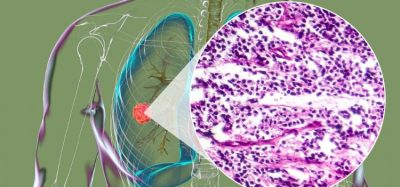Pharmacovigilance Risk Assessment Committee (PRAC) meeting highlights, January 2022
Posted: 17 January 2022 | Hannah Balfour (European Pharmaceutical Review) | No comments yet
The EMA’s pharmacovigilance committee (PRAC) began reviewing terlipressin containing medicines and recommended updates to COVID-19 vaccine safety information.


In its latest meeting the European Medicines Agency (EMA)’s Pharmacovigilance Risk Assessment Committee (PRAC) started reviewing medicines that contain terlipressin and recommended changes to the product information for Vaxzevria (AstraZeneca’s COVID-19 vaccine) and the Janssen COVID-19 Vaccine.
Reviewing terlipressin
The PRAC has started a review of medicines that contain terlipressin. Such medicines are authorised to treat increased pressure in central veins causing kidney problems in people with advanced liver disease (hepatorenal syndrome, HRS), as well as bleeding from enlarged veins in the passage between the mouth and the stomach (the oesophagus) and certain forms of bleeding associated with surgery.
The review was requested by the Danish medicines agency due to safety concerns from a large clinical trial in patients with a form of HRS where kidney function declines rapidly.
The committee will review will the safety of terlipressin medicines in the context of their benefits when used to treat HRS. At present, this review does not cover the use of terlipressin for the treatment of bleeding, since no new information on safety concerns has emerged for these uses.
Rare cases of transverse myelitis: Vaxzevria and Janssen COVID-19 Vaccine
PRAC has recommended that the product information for Vaxzevria and the Janssen COVID-19 Vaccine be updated to include a warning about very rare cases of transverse myelitis (TM) reported following vaccination. TM has also been added as an adverse reaction of unknown frequency.
TM is a rare neurological condition characterised by an inflammation of one or both sides of the spinal cord. It can cause weakness in the arms or legs, sensory symptoms (such as tingling, numbness, pain or loss of pain sensation) or problems with bladder or bowel function.
The committee reviewed available information on globally reported cases, including those in the European database for suspected side effects (EudraVigilance) and data from the scientific literature, with both vaccines. The PRAC has concluded that a causal relationship between these two vaccines and transverse myelitis is at least a reasonable possibility. The benefit-risk profile of both vaccines remains unchanged.
Vaxzevria: thrombosis with thrombocytopenia
The committee also recommended updating Vaxzevria’s product information to add more information about the very rare cases of thrombosis with thrombocytopenia (TTS) that occurred following vaccination.
A review of cumulative data has highlighted that the majority of suspected TTS events were reported worldwide after the administration of the first dose. Fewer events have been observed after the second dose. Of the 1,809 total thromboembolic events with thrombocytopenia reported worldwide, 1,643 were reported after the first dose and 166 after the second dose.
As per the current product information, the administration of a second dose of Vaxzevria is contraindicated in people who have experienced TTS following vaccination with this vaccine.
Mavenclad: risk of serious liver injury
The PRAC also discusses direct healthcare professional communication (DHPC) containing important safety information for Mavenclad (cladribine), a medicine used to treat adults with the relapsing forms (repeated flare-ups of the symptoms) of multiple sclerosis. The DHPC aims to inform healthcare professionals about adverse events of liver injury with the medication.
Liver injury, including serious cases and cases leading to discontinuation of treatment, has been reported in patients treated with Mavenclad. A recent review of available safety data has concluded on an increased risk for liver injury following treatment with Mavenclad. Most patients who experienced liver injury had mild clinical symptoms. However, in some cases, transitory high levels of enzyme transaminase exceeding 1000 units per litre and jaundice (liver affection causing, amongst others, yellowing of the skin and eyes) were described.
Liver injury will be included in the product information of Mavenclad as an adverse drug reaction of uncommon frequency.
The DHPC will be forwarded to EMA’s human medicines committee (CHMP). Following the CHMP decision, the DHPC will be disseminated to healthcare professionals by the marketing authorisation holder, according to an agreed communication plan, and published on the Direct healthcare professional communications page and in national registers in EU Member States.
Related topics
Biologics, Drug Safety, Regulation & Legislation, Therapeutics, Viruses
Related organisations
EMA Pharmacovigilance Risk Assessment Committee (PRAC), The European Medicines Agency (EMA)
Related diseases & conditions
Hepatorenal syndrome (HRS), liver disease, Liver injury, Thrombosis with thrombocytopenia syndrome (TTS)









